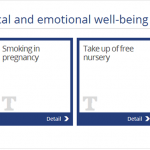The Sector-led improvement program: building desire for improvement

“Sector-led improvement is gaining momentum. Councils are investing in political leadership; finding new ways of engaging local people and communities; inviting challenge from peers; sharing good practice and utilizing comparative data as a driver for improvement.” Councilor Peter Fleming, Chairman of the LGA Improvement Board
The Sector-led improvement (SLI) program, in the United Kingdom, underlines the improvement approach developed by the Local Government Association (LGA) towards building a sustainable development of the local authorities’ capabilities.
The Local Government Association seeks to promote better local government processes and maintains a continuous communication channel with all its offices, in order to identify best practices. According to the LGA, the local authorities should:
- Be responsible for their own performance;
- Be accountable on a local level;
- Develop a sense of collective responsibility, for the performance of the sector as a whole.
The English Government stated that the previous assessment regime was too expensive in the current economic climate, as the National Audit Office reported an estimated cost of £2bn a year was needed for monitoring the local authorities’ performance.
Therefore, the LGA, alongside the local authorities, developed a new approach to improvement. In June 2012, the LGA released a document, entitled “Sector-led improvement in local government“, in which a coordinated approach to sector-led improvement is described.
The Sector-led improvement program is based on the following key principles:
- Councils are responsible for their own performance and improvement and for the delivery of improved outcomes for local people in their respective areas.
- Councils are primarily accountable to local communities (not the government or the inspectorates). Stronger accountability, through increased transparency, helps drive improvements for the local population.
- Councils have a collective responsibility for the performance of the sector as a whole (evidenced by sharing best practices, offering their member and officers peer reviews, etc).
- The role of the LGA is to maintain an overview of the sector’s performance, in order to identify potential performance challenges and opportunities – and to provide the necessary tools and support to help councils take advantage of this new approach.

Following the LGA’s commitment to provide development to local authorities and political leaders, through the sector-led improvement program, they offer one subsidized entry for each local authority, in one of the following programs:
- “Leadership Academy” – A two-day academy training session, in which the leading councilors learn from experts in the field, and also share their best practices with one another.
- “Leeds Castle”– An intensive 10-days program, in which council leaders and chief executives enhance their understanding of the link between leadership, council success, and locality.
- “Next Generation” – Is a prestigious leadership program, developed with the aid of political party experts, aimed mainly at ambitious councilors, enabling them to face and overcome their current and future political challenges.
Another improvement initiative from the SLI is represented by the “LG Inform” initiative – a data platform for local councils, which grants access to a wide range of financial and performance data. This platform enables performance comparisons between the local authorities’ scorecards and reports.
“The Knowledge Hub” is a web-based service designed by the LGA, which enables councils to share best practices and ideas, learn from each other and work together.
The SLI represents a success story in England’s governmental environment, strengthened by the positive feedback received from national stakeholders, council leaders, directors, and chief executives. An evaluation published in May 2014, stated that:
- More than two-thirds of respondents (70%) are fairly satisfied with the way their council runs things, and when people were asked whether they trusted the councils or the government to make decisions about how services were provided in their local area, 77% indicated local councils.
- The Councils’ performance in a wide range of metrics improved. An analysis containing 97 metrics, indicated a positive direction, with an average of three-quarters of them seeing an improvement since 2010.
- The approach given by the LGA is highly valued by councils. In a survey performed by the LGA, 93% of the leaders were aware of the program, and 93% of chief executives stated that the support and resources given by the LGA had a positive impact on their office.
Local councils’ commitment and dedication in achieving performance are evidenced by their shared support for this objective.
By the end of March 2014, councils had actively contributed with more than 2,500 days of officer and senior counselor time to corporate peer challenge teams, underlining a considerable investment in its own development – this was equivalent to millions of pounds worth of consultancy.
Image sources:

Tags: Government performance, performance improvement, Performance in UK, Public sector





